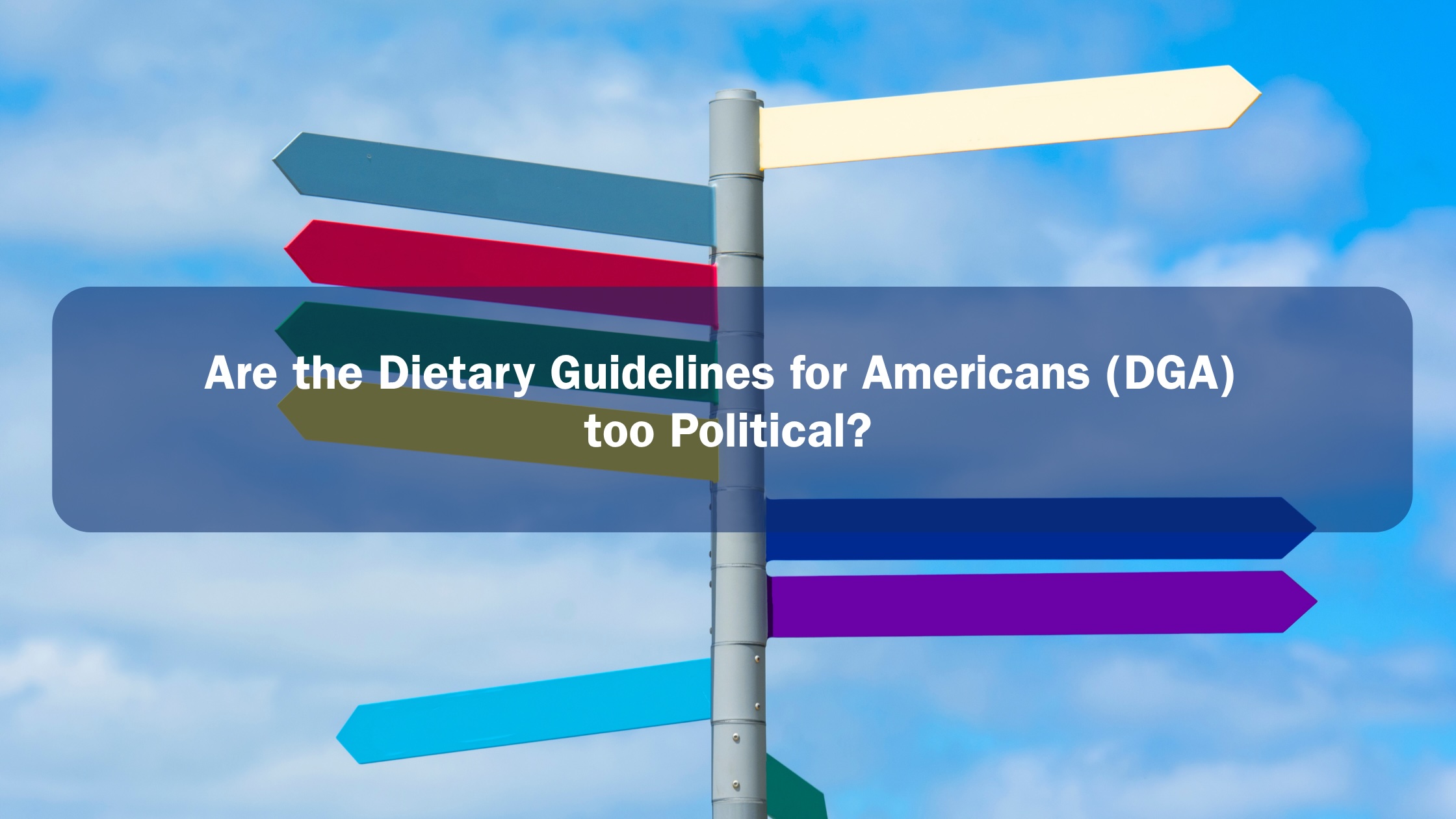Are the Dietary Guidelines for Americans (DGA) too Political?

By Lauren Black
Critics of The Dietary Guidelines for Americans (DGA) argue that political agendas and food industry lobbyists have influenced national nutrition recommendations. Since 1980, the DGA have been updated every 5 years by the United States Department of Agriculture (USDA) and the Health and Human Services Department (HHS) to inform federal nutrition policy, nutrition education programs, and guide health promotion initiatives.1,2 In recent years, concern for political and food industry influence has increased.1,2This study addressed controversial issues within the development process of the DGA such as conflicts of interest, transparency, and industry influence.
Semi-structured interviews with key experts involved in the DGA Scientific Advisory Committees (DGAC) were conducted to highlight real insider experiences. Primary findings revealed that DGAC Members strongly support the scientific rigor required to generate the DGA scientific report. Interviewees shared insights into the vetting process prior to appointment and discussed some of the challenges of the position, such as the short timeline and research limitations. Interviewees addressed the varying opportunities for external pressure on the DGA, emphasizing the power of Congress to direct the scope and direction of the final DGA Policy Report. Additionally, interviewees discussed the consequences of political and food industry conflict with the DGA including public mistrust that results in low adherence to the recommendations and reduced use of outreach tools such as MyPlate.
One interviewee shared a thought on the current acceptance of the DGA:
"The fact that so few people know about these resources out there is in itself afailing of the Dietary Guidelines process. What it says is we put all this money andenergy and time into developing these guidelines, and then they're the best kept secretout there."
While any human-run project will have inherent bias, the DGA is in a particularly bright spotlight for congress and food industry attention. Critics argue that federal staff and DGAC Members have unacceptable conflicts of interest. Additionally, scrutiny exists for the public comment periods, which are popular for food industry organizations to submit scientific arguments for certain foods or products. Interviewees discussed both topics—stressing the difference between actual and perceived conflicts of interest as well as the importance of well-managed public comments to ensure representation of diverse scientific interests.
This research revealed that while the scientific methods used to develop the scientific report have limitations, the process is rigorous. Additionally, knowing there is an unavoidable potential for external pressure and bias to influence the final published DGA indicates a need to focus on quantifying conflicts of interest, emphasizing diversity, and prioritizing high-quality scientific review methods. Improving the DGA process should allow room for growth to improve nutrition-related health outcomes. Interviewees suggested that these efforts could improve the currently lacking public trust in the DGA and address low adherence to the guidelines. Furthermore, the agencies should prioritize evaluating the efficacy of the DGA—such as assessing barriers to public utilization of the guidelines. Strengthening the evidence base in this way will not only enhance credibility of the DGA but also support its continued evolution in serving nutrition-related public health goals.
References:
- The Dietary Guidelines for Americans: Development, Implementation, and Considerations for Congress. Library of Congress. Published March 28th, 2023. Accessed March 14, 2025. https://www.congress.gov/crs-product/R47488
- Jesus JM, Stoody EE, DeSilva DM, et al. Addressing misinformation about the Dietary Guidelines for Americans. Am J Clin Nutr. 2024;119(5):1101-1110. doi:10.1016/j.ajcnut.2024.02.034
- Wambogo E, Ansai N, Wang CY, et al. Awareness of the MyPlate Plan: United States, 2017–March 2020. National Center for Health Statistics (U.S.); 2022. doi:10.15620/cdc:121629
- About the Process (2020) | Dietary Guidelines for Americans. www.dietaryguidelines.gov. https://www.dietaryguidelines.gov/resources/about-process-2020. Accessed April 2, 2025.
